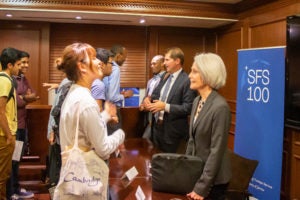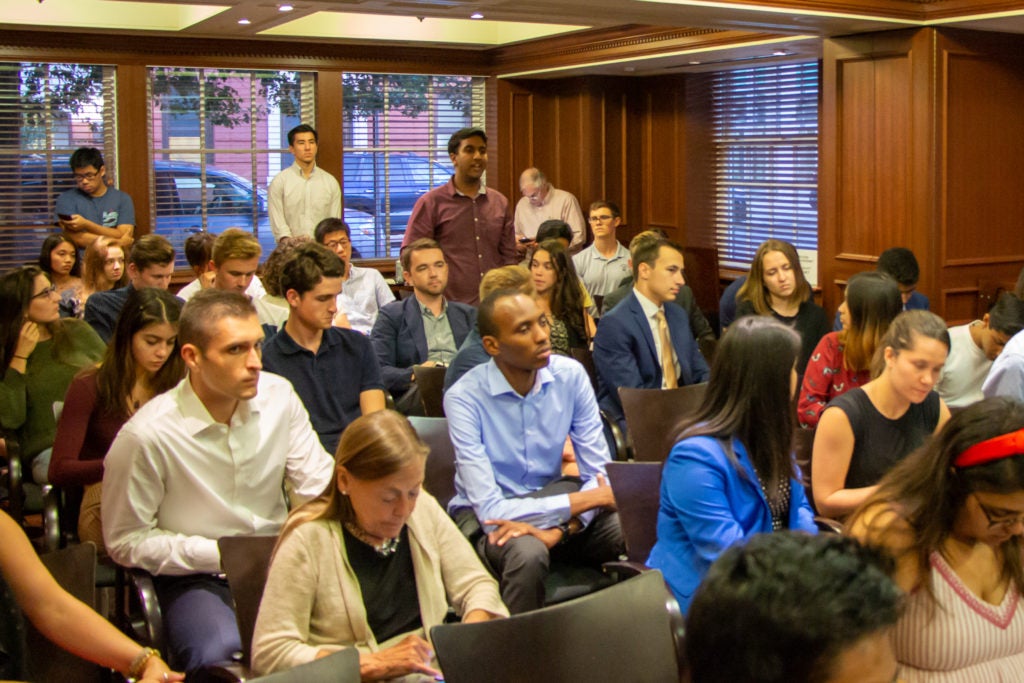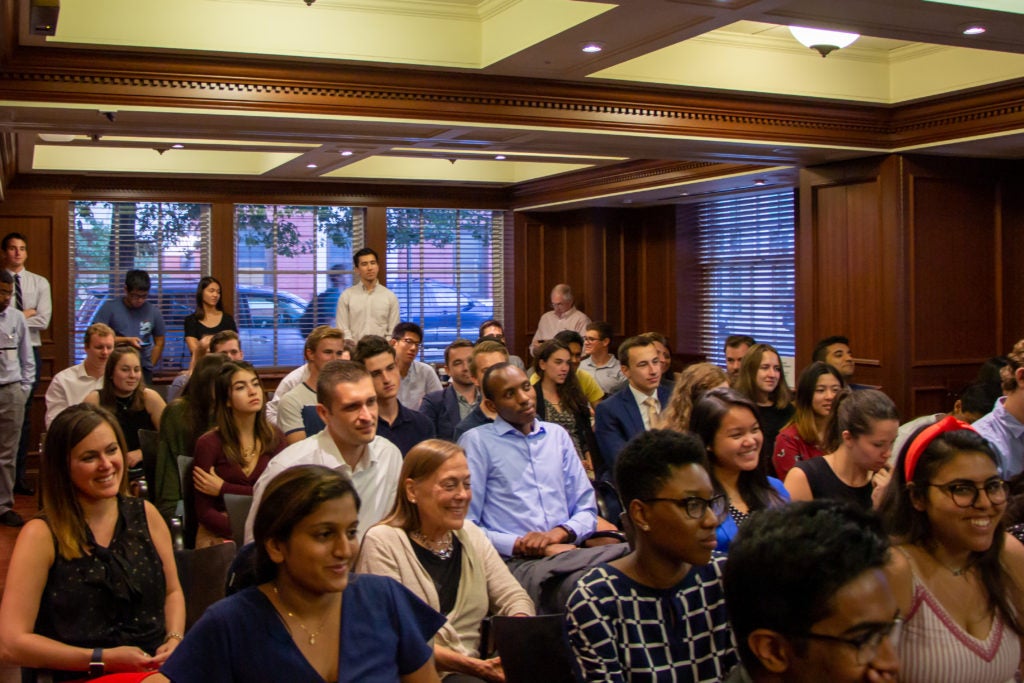On Monday September 16, the Georgetown School of Foreign Service welcomed its 2019 cohort of four Centennial Fellows, who engaged students and faculty in conversations about the evolving role of the United States in Global Leadership at an event held in their honor. The Centennial Fellows program invites global practitioners to campus with the aim of offering their expertise to the broader Georgetown community. Now in its third year, the program is hosting professionals from both the public and private sector, including two Georgetown alumni, who will mentor students who have successfully applied to the Junior Fellows program, as well as make themselves available to other students and professors.
Jill Dougherty (S’13) is a Global Fellow at the Woodrow Wilson International Center for Scholars and a CNN contributor. She began her talk by outlining the three major categories of challenges facing U.S. global leadership: rivalry with hostile states, domestic issues, and global questions that transcend national borders, such as climate change and the pace of technological development. As an expert on Russia and the former Soviet Union, Dougherty also explained the unique threat that Russia poses, combining all three elements of these major challenges in its attempts to undermine the Western system. Dougherty followed her three-decade journalism career with research at the Harvard Kennedy School on Russian mass media; she continues her research on Russia’s soft power at the Wilson Center.
Sheba Crocker is CARE USA’s Vice President for Humanitarian Policy and Practice as well as the former Assistant Secretary of State for International Organization Affairs. Crocker echoed Dougherty, similarly warning about significant impacts of a weakened U.S. presence abroad. She explained that she was anticipating a challenge to the international system as it currently exists and suggested the need for fundamental reform, which “everybody’s terrified of talking about in this day and age.” Crocker highlighted the United Nations aid system, which she describes as “captured,” as one area that desperately requires an update. According to her description, the majority of money flows from Western donor nations into the three largest UN agencies instead of a more even and effective distribution.

W. Gyude Moore (MSFS’09) is a Visiting Fellow at the Center for Global Development and the former Minister for Public Works of Liberia. Illustrating his broad knowledge of the African continent, Moore used statistics to demonstrate that region’s overlooked importance and critical future: between 2019 and 2050, 28 countries are set to see their populations double, 26 of which are in Africa. Within this context, he said, China has become increasingly influential by providing financial stimuli to development projects all over the continent. Moore also reflected on the transitory nature of U.S. engagement, explaining that policy toward Africa has been dependent on the occupant of the White House, and in 2009, China surpassed the U.S. as Africa’s largest trading partner. While rapid development is necessary, Moore was quick to point out that the new actors assisting in development are liable to take advantage of weak systems and lax regulations governing their corporations acting abroad.
E. William Priestap is the former Assistant Director of the FBI’s Counterintelligence Division. Much in the way that Dougherty pointed to Russia as a threat on three major levels, Priestap drew attention to China’s multifaceted strategy of combating U.S. global supremacy. In its repeated challenges to international law, use of traditional espionage, ability to foster economically dependent relations (as Moore noted with respect to Africa) and theft of intellectual property, Priestap said China has the capability to destabilize the international system on many different levels. He closed by saying, “If we lose that competition…the world will be far less free as a result.”
Students were quick to ask questions, pushing the Fellows to elaborate on concepts and explore new areas of discussion. The latter part of the session touched on concerns about nuclear proliferation due to uncertainty about international regulatory treaties, as well as more theoretical questions about the need for internal change in the American system. During one of his answers, Moore expressed hope for the future in spite of current global instability: “I have this belief…that this country is an unfinished project…and that every generation adds to this conversation.”


